Lou Ye, Lila Rasti, PS Vinothraj, Ala Eddine Slim, Courtney Stephens, Lilith Kraxner and Milena Czernovsky, outstanding and new independent filmmakers from Tunisia, India, Iran and the United States, will present their innovative proposals in this 69th edition of SEMINCI.
Valladolid, October 3, 2024. Alchimies, one of the festival’s competition sections that aims to prove that cinematic language still has ample room for innovation, presents nine visions that share a revitalized look at visual proposals in terms of how to approach and present political, social or emotional issues. The 69th edition’s selection features filmmakers with few titles to their credit alongside unyielding veteran visionaries. Jointly, they cover multiple territories and sensibilities to offer a lucid and risky perspective on human beings and today’s society.
Backed by a 25-year career, Lou Ye (Suzhou River), in An Unfinished Film (Germany, Singapore), tackles the covid epidemic in the form of a filmmaker’s diary. The meta-film chronicle that makes up this feature film is a testimony both exciting and revealing about how the pandemic was experienced in China, unknown in the West, through the challenges of a film crew trapped in a confined Wuhan in January 2020. Shot by a filmmaker possessed of a courageous voice and a style rare in Chinese filmmaking, interweaving reality and fiction in indistinguishable layers. As early as 2006, he dared to break two taboos with Summer Palace: sexuality and police repression in Tiananmen Square. Leading to a five-year ban from filmmaking by the Chinese government.Backed by a 25-year career, Lou Ye (Suzhou River), in An Unfinished Film (Germany, Singapore), tackles the covid epidemic in the form of a filmmaker’s diary. The meta-film chronicle that makes up this feature film is a testimony both exciting and revealing about how the pandemic was experienced in China, unknown in the West, through the challenges of a film crew trapped in a confined Wuhan in January 2020. Shot by a filmmaker possessed of a courageous voice and a style rare in Chinese filmmaking, interweaving reality and fiction in indistinguishable layers. As early as 2006, he dared to break two taboos with Summer Palace: sexuality and police repression in Tiananmen Square. Leading to a five-year ban from filmmaking by the Chinese government.
Two other names present in this edition of Alchemies break with the conventionalisms of two major and highly recognizable cinematic identities, the Iranian and the Indian. These formal ruptures with the status quo run parallel to the characters’ fracture of the conventions set by the authorities. For example, The Great Yawn of History (Iran), by Lila Rasti, an emerging name to be noted in the incessant flow of Iranian independent filmmaking, Rasti outlines, with tinges of comedy, an ironic portrait of capitalism and religion in Iran through a treasure hunt by two men forced by the precariousness of their situation.
The Adamant Girl, PS Vinothraj’s second film, shows the silent but fierce resistance of a young woman who confronts the retrograde and misogynistic ideology of her family when, horrified by her desire to marry a man of a lower caste, they send her to a shaman to magically counteract the spell they believe she is under. This young filmmaker, who won the Tiger Award at the Rotterdam Festival with his debut, Pebbles (2021), managed to break into the Indian film industry by selling DVDs on the streets of Chennai, after having worked from the age of eight in a textile workshop pushed by his family’s poverty. His filmography reflects both his life and the situation in the Tamil region from which he is from.
The rebellious character of the protagonists in the face of repressive authorities and customs also underlies Ala Eddine Slim‘s (Tlamess/Sortilegio) Agora (Tunisia, France, Saudi Arabia). The Tunisian filmmaker plays with the codes of science fiction thriller and denunciation cinema by proposing a fantastic fable in which the State tries to control public opinion, normalizing the unusual, when deceased people suddenly return home. Possessing a highly expressive style that never ceases to evolve, Slim earned the Luigi De Laurentiis award for best debut feature at the Venice Film Festival in 2016 with Akher Wahed Fin.
Completing the international lineup are two feature films of extreme sensitivity: Invention (USA), by Courtney Stephens (Lesser Choices), and Bluish (Austria), by Lilith Kraxner and Milena Czernovsky. The former resorts to the very current resource of autofiction to tell the story of the journey of discovery undertaken by producer, co-writer and protagonist Callie Hernandez (Alien: Covenant, La La Land) after the death of her father. An example of current American independent cinema, it plays with the texture offered by filming in super 16 mm as another expressive element in the story.
Following the same emotional tone, Bluish, the proposal of the two Austrian directors Lilith Kraxner and Milena Czernovsky, revolves around the precariousness and the search for identity of today’s European youth, personified by two young women and the routines in their everyday lives. Following Beatrix, this second collaboration between the two directors earned them the Grand Prize in the international competition at the FIDMarseille festival.
The Spanish entries in this section, previously announced, are no strangers to experimentation, showcasing existential concerns with a new approach to contemporary sensitivities. Starting with Miguel Morillo Vega‘s first feature film, Cyborg Generation, the non-fiction story of a young musician’s symbiotic relationship with the technology implanted in his body, to The Human Hibernation, Anna Cornudella Castro‘s debut feature, winner of the Fipresci Award in the Forum section of the Berlinale, distributed by Begin Again. Cornudella transcends the reflection on the human being to all creatures and nature, in general, with a starting point that draws from Soviet science fiction cinema. An exercise as unsettling as the one that the provocative Alberto Gracia proposes in La parra, one of the Spanish films that have attracted the most attention this year, for its surrealism reminiscent of Valle Inclán and David Lynch, its multiplicity of narrative and visual tones. Produced by Filmika Galaika and Tasio, the film is distributed by Begin Films.

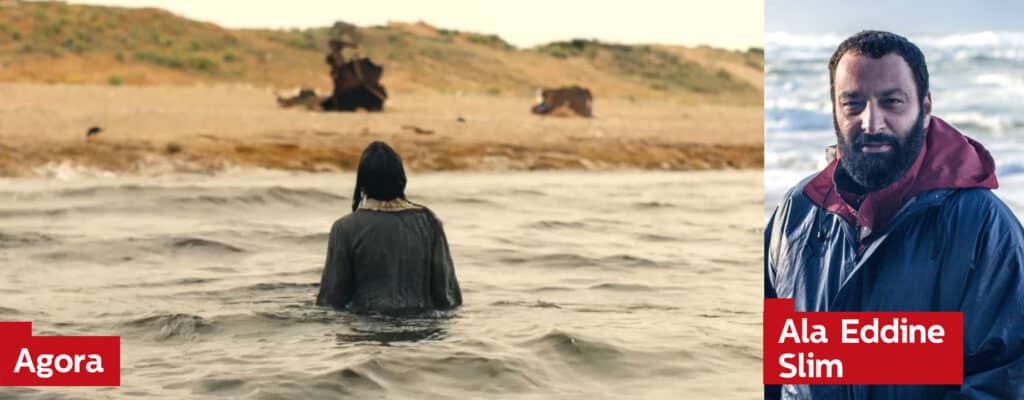
AGORA. ALA EDDINE SLIM
Tunisia, France, Saudi Arabia, Qatar
Tunisian filmmaker Ala Eddine Slim (Tlamess/Sortilegio), founder of one of the first independent production companies in his country, delves in his third feature film into themes such as liberation and resistance under a political prism. A fable in which two animals dream of the lack of human ability to overcome unresolved problems of the past.
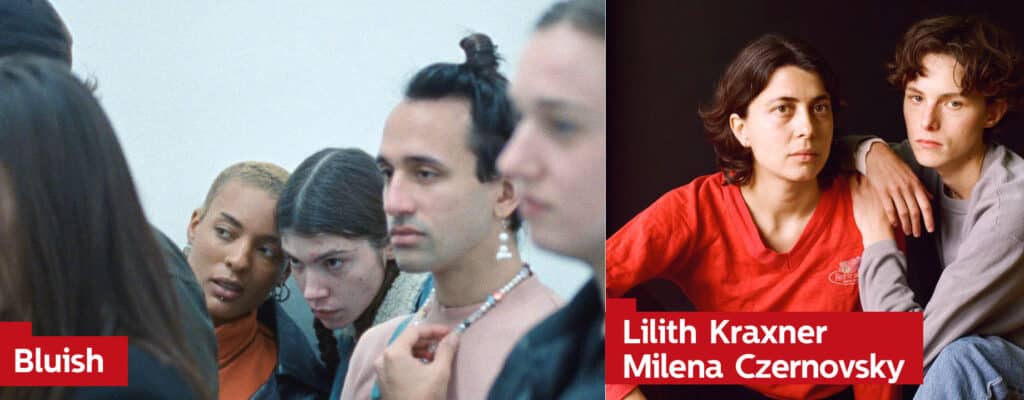
BLUISH. LILITH KRAXNER, MILENA CZERNOVSKY
Austria
Beautifully shot in the bluish tones that give its title to Lilith Kraxner and Milena Czernovsky‘s second film together as directors, Bluish does not linearly follow the lives of two young women in Vienna; it liminally projects into the viewer’s mind scenes from their lives, apathetic in appearance, like memories in a fog. The result is a poignant depiction of the existential angst that surrounds its protagonists, who must confront the complexities of personal growth in a challenging and alienating environment. The film won the grand prize in the international competition at the FIDMarseille festival.

CYBORG GENERATION. MIGUEL MORILLO
Spain
Miguel Morillo Vega has spent five years investigating in his first feature film, Cyborg Generation, the transition from human to cyborg of Kai Landre, a young 18-year-old musician who gets a cybernetic organ implanted to acquire a new sense that he uses to compose. The result allows the viewer to witness this organic and unprejudiced relationship with technology. Distributed by Freak Agency.
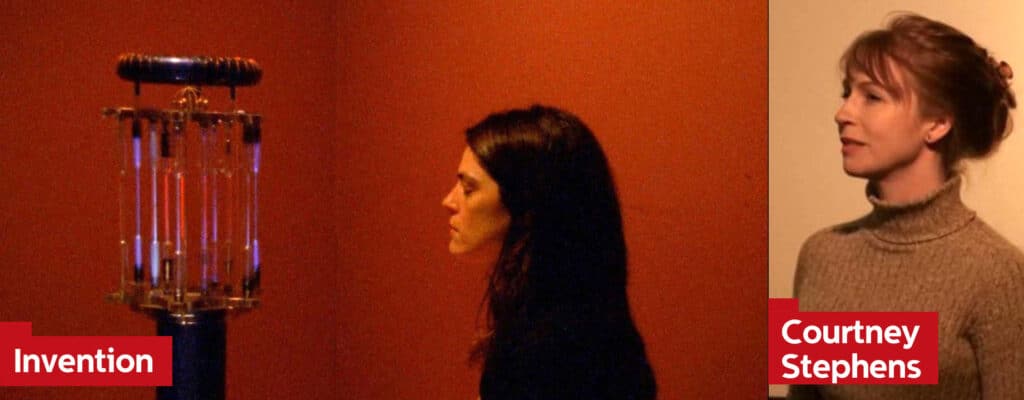
INVENTION. COURTNEY STEPHENS
United States
Filmmaker Courtney Stephens (Terra Femme) and screenwriter/actress Callie Hernandez aim in Invention to explore the fictions and fantasies that often follow the loss of a loved one as ways of coping with grief. In this case, the making of the film becomes part of the process of overcoming grief over the sudden death of Callie Hernandez’s father, who inherits from him the patent for an experimental healing device, the excuse for a journey of discovery.
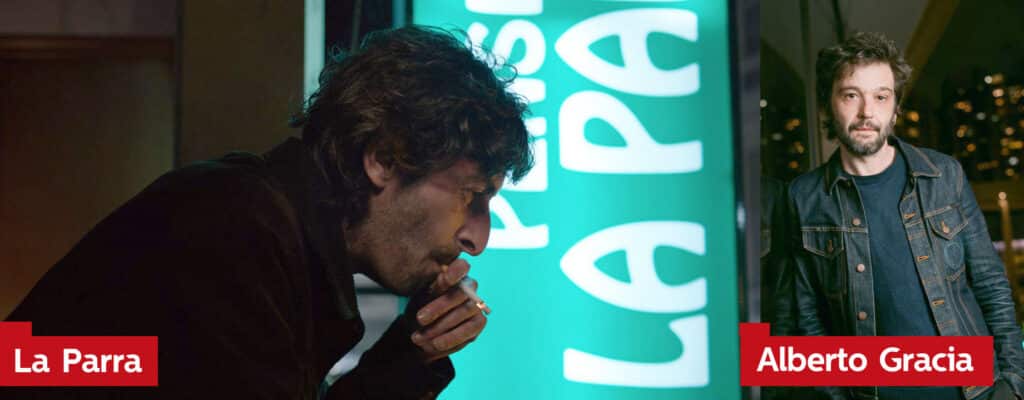
LA PARRA. ALBERTO GRACIA
Spain
Alberto Gracia explores in his third feature film, La parra, premiered at the International Film Festival Rotterdam, issues such as the trivialization of the audiovisual image, human dignity and historical memory. Gracia, one of the great talents of the Novo Cine Galego, takes as his starting point the story of Damián, a middle-aged man who lives precariously in Madrid and, upon learning of the death of his father, returns after twenty years to his hometown, Ferrol, where he stays in a legendary guest house that gives its name to the film and through which eccentric characters pass.
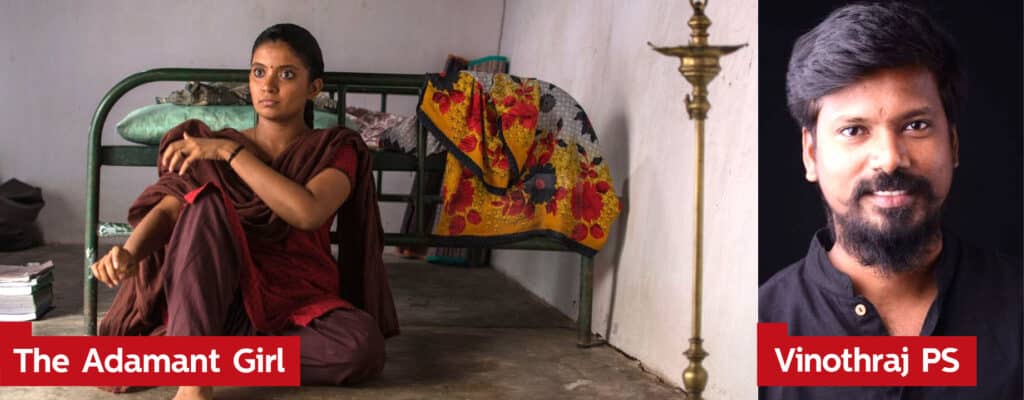
THE ADAMANT GIRL. VINOTHRAJ PS
India
The second feature by the young Tamil filmmaker Vinothraj PS returns, after Pebbles (Tiger Award at the Rotterdam Festival), to his native region to narrate in The Adamant Girl the confrontation of a young girl with the traditional established order, how misogyny and superstition have woven a society marked by caste prejudice and arranged marriages.
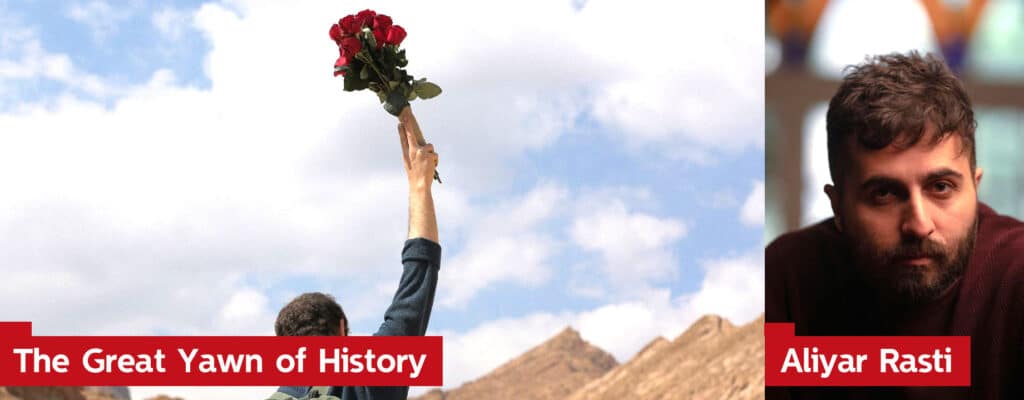
THE GREAT YAWN OF HISTORY. ALIYAR RASTI
Iran
The Great Yawn of History, the feature directorial debut of the young Iranian audiovisual creator Aliyar Rasti, could not have been more successful. The Great Yawn won the Special Jury Prize in the Encounters section at the Berlin Film Festival. The performance of the two main characters (Mohammad Aghebati and Amirhossein Hosseini) infuses with great filmic energy the treasure-hunting journey that Rasti has written as if it were a parable about the hope for his country that his generation boasts.

THE HUMAN HIBERNATION. ANNA CORNUDELLA
Spain
The Human Hibernation, Anna Cornudella‘s debut feature, winner of the Fipresci Award in the Forum section of the Berlinale, proposes a dystopian vision in which the human being hibernates during the coldest months of the year and lives a reality in which humans are not the center of the world, to lead the viewer to reflect on humanity, its relationship with the planet and with the rest of people and living beings that inhabit it.
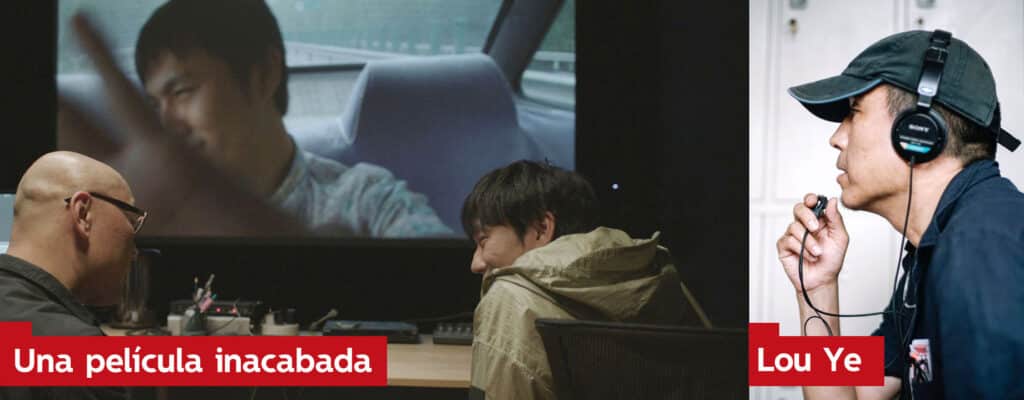
AN UNFINISHED FILM. LOU YE
Singapore, Germany
Some films are cursed. When director Lou Ye, who was censored for five years by the Chinese authorities, found an unfinished film, he wondered what would happen if a film crew assembled to finish it 10 years later were forced to lock themselves in a hotel when the covid-19 pandemic struck. Shot with hand-held camera, An Unfinished Film becomes a fictional portrait of a real situation, a pretext that blurs the boundaries between fiction and documentary by including archival footage unknown to Western audiences.
Press contact:
983 42 64 60



























![Logo Foro Cultural de Austria Madrid[1]](https://www.seminci.com/wp-content/uploads/2024/09/Logo-Foro-Cultural-de-Austria-Madrid1-300x76.jpg)








